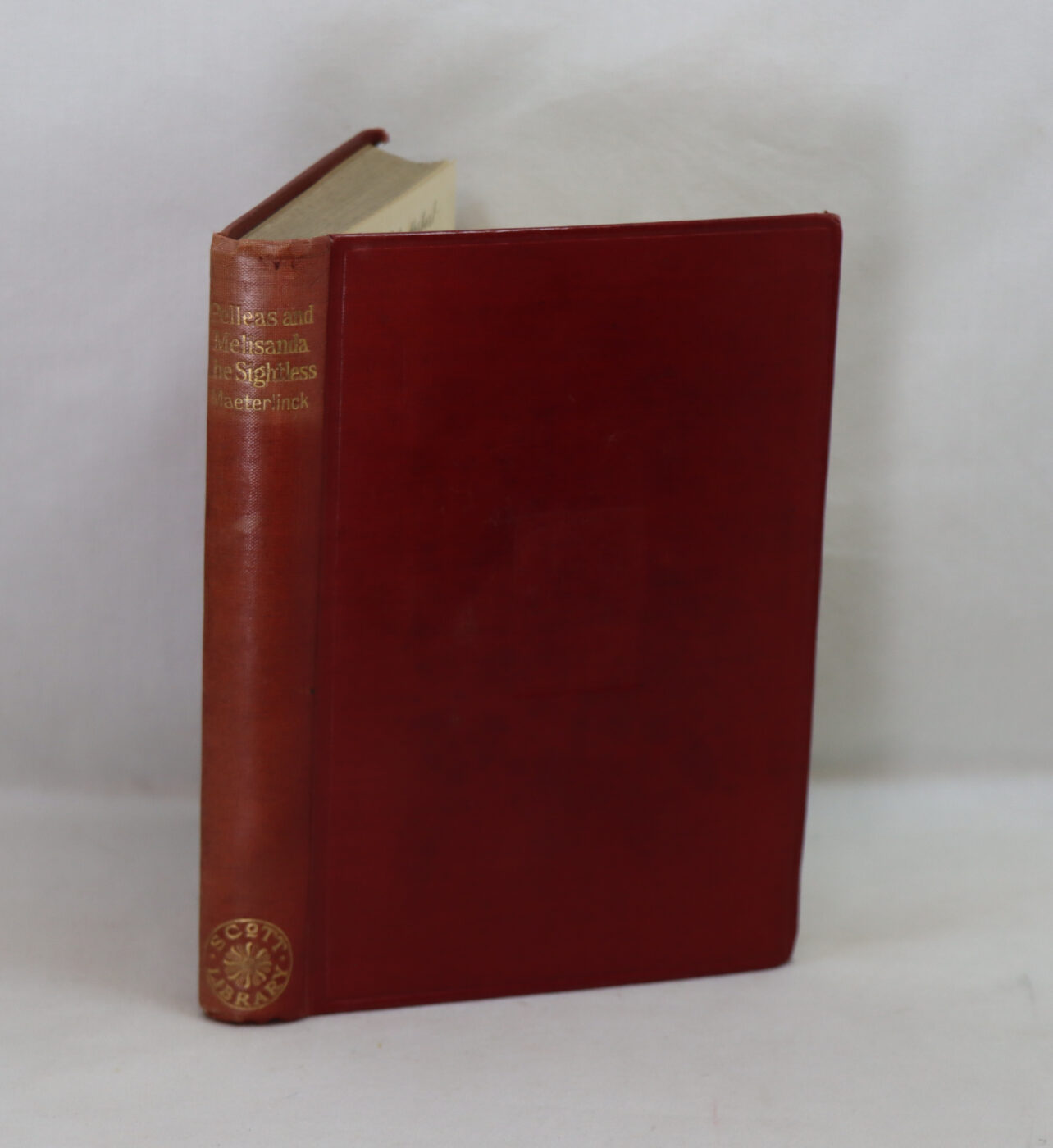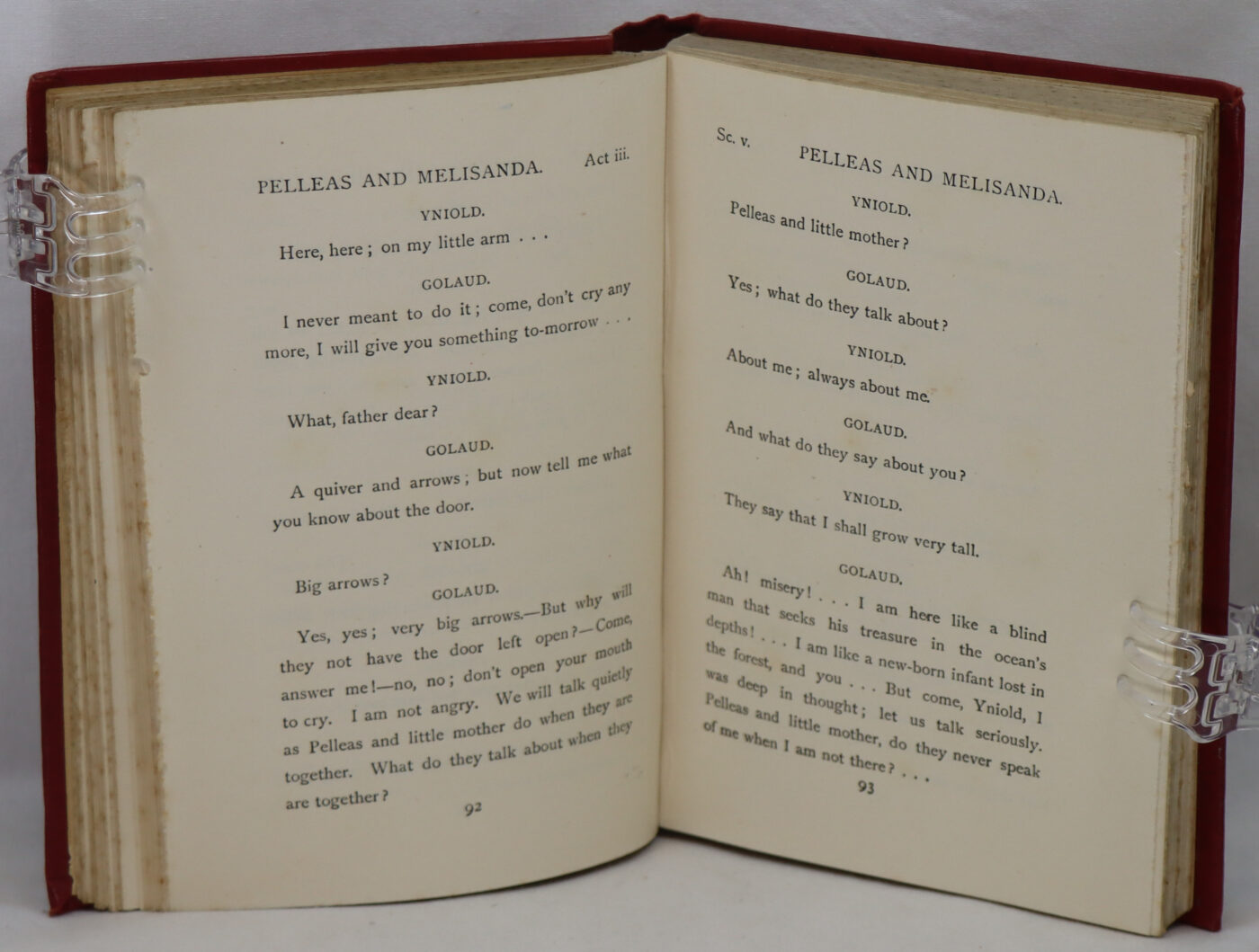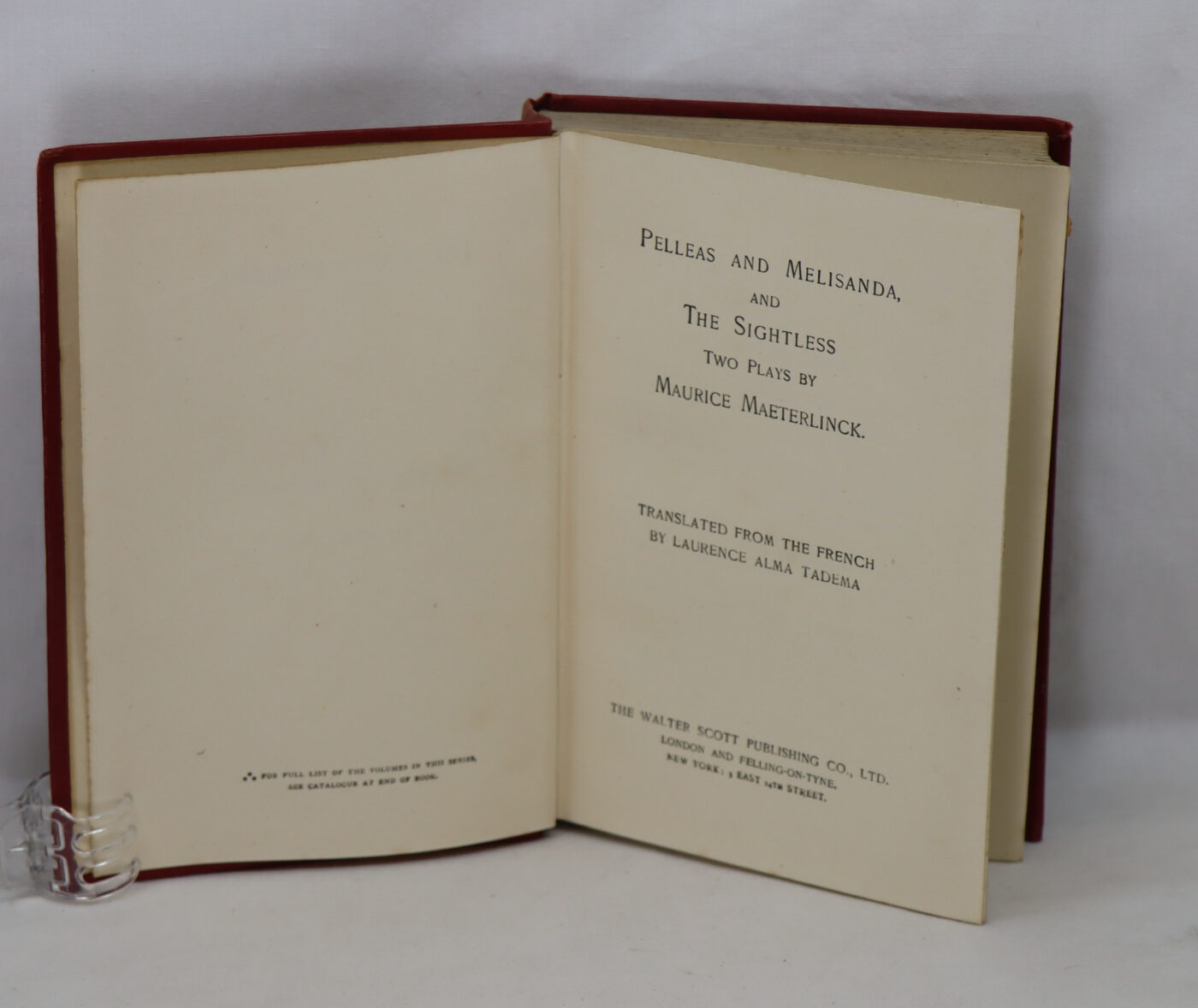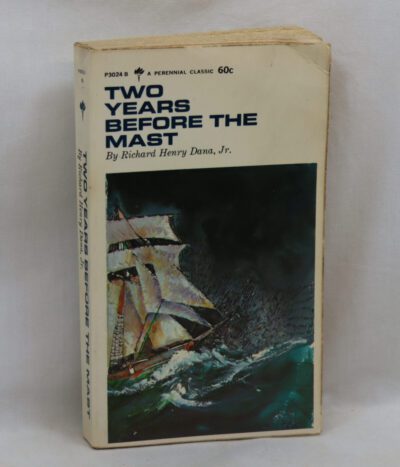Pelleas and Melisanda. The Sightless.
By Maurice Maeterlinck
Printed: Circa 1920
Publisher: The Walter Scott Publishing Co. London
| Dimensions | 13 × 17 × 2 cm |
|---|---|
| Language |
Language: English
Size (cminches): 13 x 17 x 2
Condition: Good (See explanation of ratings)
Item information
Description
Red cloth binding with gilt title on the spine.
We provide an in-depth photographic presentation of this item to stimulate your feeling and touch. More traditional book descriptions are immediately available
- Note: This book carries a £5.00 discount to those that subscribe to the F.B.A. mailing list
For conditions, please view our photographs. An ab-sorbing read!
Maurice Polydore Marie Bernard Maeterlinck (29 August 1862 – 6 May 1949), also known as Count/Comte Maeterlinck from 1932, was a Belgian playwright, poet, and essayist who was Flemish but wrote in French. He was awarded the Nobel Prize in Literature in 1911 “in appreciation of his many-sided literary activities, and especially of his dramatic works, which are distinguished by a wealth of imagination and by a poetic fancy, which reveals, sometimes in the guise of a fairy tale, a deep inspiration, while in a mysterious way they appeal to the readers’ own feelings and stimulate their imaginations”. The main themes in his work are death and the meaning of life. He was a leading member of the group La Jeune Belgique, and his plays form an important part of the Symbolist movement. In later life, Maeterlinck faced credible accusations of plagiarism.
Pelléas et Mélisande (Pelléas and Mélisande) is an opera in five acts with music by Claude Debussy. The French libretto was adapted from Maurice Maeterlinck’s symbolist play of the same name. It premiered at the Salle Favart in Paris by the Opéra-Comique on 30 April 1902; Jean Périer was Pelléas and Mary Garden was Mélisande, conducted by André Messager, who was instrumental in getting the Opéra-Comique to stage the work. It is the only opera Debussy ever completed.
The plot concerns a love triangle. Prince Golaud finds Mélisande, a mysterious young woman, lost in a forest. He marries her and brings her back to the castle of his grandfather, King Arkel of Allemonde. Here Mélisande becomes increasingly attached to Golaud’s younger half-brother Pelléas, arousing Golaud’s jealousy. Golaud goes to excessive lengths to find out the truth about Pelléas and Mélisande’s relationship, even forcing his own child, Yniold, to spy on the couple. Pelléas decides to leave the castle but arranges to meet Mélisande one last time and the two finally confess their love for one another. Golaud, who has been eavesdropping, rushes out and kills Pelléas. Mélisande dies shortly after, having given birth to a daughter, with Golaud still begging her to tell him “the truth.”
Pelléas et Mélisande has remained regularly staged and recorded throughout the 20th- and into the 21st-century.
Want to know more about this item?

Related products
Share this Page with a friend












